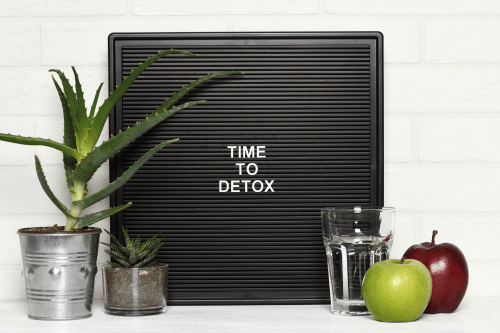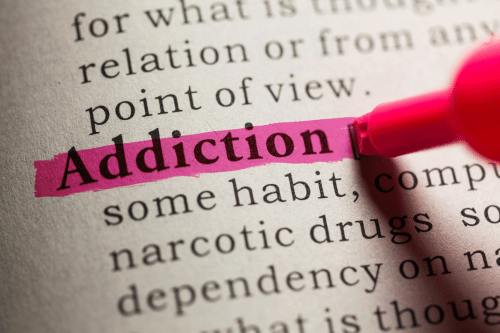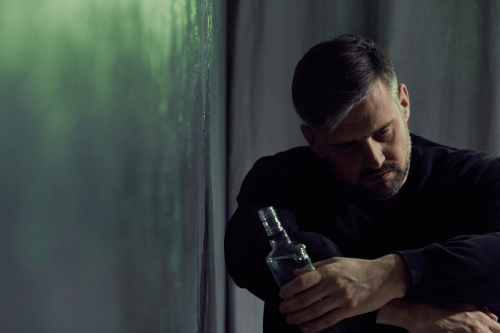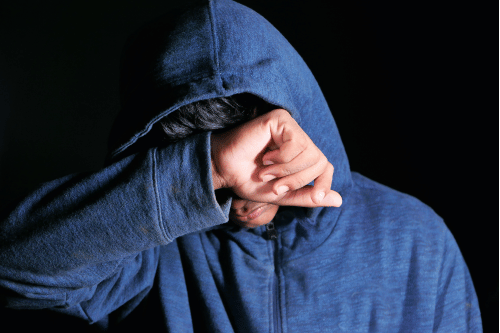

Supervised medical detox is a structured process that helps individuals safely withdraw from substances under the care of licensed medical professionals. This includes managing physical dependence, monitoring vital signs, and reducing withdrawal risks. Detoxification programs at Sullivan Recovery are designed for drugs like alcohol, opioids, benzodiazepines, and other substances that can cause severe symptoms during drug withdrawal.
Medical detox is essential when stopping substances that affect brain chemistry, such as morphine, fentanyl, and methadone. These substances can trigger dangerous physical or psychological reactions without proper medication and support. Our treatment center uses medications like buprenorphine and naltrexone as part of our opioid detox approach to reduce cravings and ease symptoms related to opioid use disorder.
Many people entering detox also face mental health conditions like anxiety, depression, or post-acute withdrawal symptoms. This is especially true in dual diagnosis cases, where both mental health and substance abuse issues exist at the same time. Our team includes psychiatrists, physicians, and mental health specialists who provide integrated care with a focus on both physical and emotional health.
Sullivan Recovery also incorporates dialectical behavior therapy and other evidence-based methods to help patients manage emotional regulation and behavior during detox. These therapies are particularly important for individuals with a history of substance dependence and co-occurring mental illness, as they strengthen coping skills and prevent impulsive behavior. We provide access to ongoing mental health treatment alongside detox, ensuring every patient receives support for both addiction and psychiatric needs.
Motivation is a key factor during the early stages of recovery, especially when symptoms like anxiety, cravings, and drug withdrawal are present. Therapy sessions at our treatment center help build behavioral awareness, improve mood stability, and prepare patients for continued rehab. By combining supervised medical detox with structured mental health treatment, we reduce the risk of relapse and promote long-term sobriety through comprehensive care.
Some substances are more likely to result in severe or life-threatening withdrawal, which is why medical detox is required. These include:
Detoxification from these substances often involves using medicine to stabilize the brain and body. Buprenorphine and methadone are commonly used opioid agonists that relieve symptoms in those with opioid use disorder and prevent relapse. Naltrexone is another medication used to block opioid effects and support early sobriety without creating physical dependence. These detoxification programs often integrate therapy, nursing care, and physician oversight to ensure safety and improve treatment outcomes.

Medication plays a vital role in helping patients get through detox safely and with fewer complications. During opioid or alcohol detox, medications manage symptoms like nausea, muscle aches, cravings, and insomnia. These medicines are prescribed by physicians trained in addiction medicine, psychiatry, and behavioral health to address both physical and mental health needs.
Medications also support mental health stability during detox. For example, someone struggling with both anxiety and substance abuse may benefit from supervised medicine adjustments during the early stages of withdrawal. This is especially important in dual diagnosis cases, where drug detox must be balanced with psychiatric care. Antidepressants, mood stabilizers, and anxiety-reducing medications may be used under supervision to improve emotional regulation and support therapy goals.
Our nursing staff closely monitors all medication to ensure proper dosage, safety, and response. Common medications include buprenorphine, methadone, and naltrexone for opioid withdrawal, as well as supportive medicine for symptoms like insomnia, tremors, and high blood pressure. Patients also receive therapeutic support to address behavior, motivation, and long-term sobriety goals. Supervised medical detox combines medication, clinical monitoring, and therapy in a structured treatment center setting, giving every patient a safe path out of substance dependence.
One major benefit of supervised medical detox is constant oversight from medical staff. Withdrawal symptoms can change quickly and may lead to health emergencies without intervention. At Sullivan Recovery, we monitor vital signs and behavior closely to respond to any changes during detox.
Our team includes licensed nurses, behavioral health specialists, and addiction physicians. This multidisciplinary approach ensures every patient receives individualized care based on their physical and mental health needs. Whether detoxing from alcohol, benzodiazepines, or opioids, having trained professionals nearby improves safety.
Relapse is most common during the first days or weeks of sobriety. Physical cravings, psychological stress, and untreated mental health symptoms increase the risk. Supervised medical detox lowers this risk by offering a stable, supportive environment with structured care.
Detox is not the full solution, but it is the foundation for recovery. After medical detox, patients can transition into outpatient rehab, therapy, and long-term treatment. At Sullivan Recovery, we prepare each patient with the coping skills and therapeutic resources needed to maintain sobriety after detox.

Detox is step one in the recovery journey. Once withdrawal is complete, patients can begin therapy focused on behavior change, motivation, and relapse prevention. Sullivan Recovery offers multiple levels of care, including outpatient programs that address both substance abuse and mental health issues.
Treatment plans may include dialectical behavior therapy, medication-assisted treatment (MAT), and dual diagnosis support. Patients often receive ongoing support from a psychiatrist and primary physician while working on sobriety and stability.
Different medications are used based on the drug being discontinued and the severity of symptoms:
Medication is always combined with therapy and ongoing monitoring by physicians and nurses.
Detox can bring symptoms like sweating, tremors, nausea, agitation, and insomnia. For some patients, symptoms escalate into panic, hallucinations, or seizures. At Sullivan Recovery, our team provides a secure setting and structured support to ease discomfort and improve safety.
We teach coping techniques and mindfulness strategies that can be carried into future rehab and therapy. This helps patients feel more in control and motivated to continue with recovery.
Supervised medical detox is strongly recommended for people who:
Even if symptoms seem mild at first, they can escalate quickly. Medical detox ensures early signs are recognized and treated immediately, reducing the risk of complications.

Inpatient detox involves staying overnight in a medical setting, while outpatient detox allows the patient to live at home and check in for care. At Sullivan Recovery, our outpatient detox model is ideal for stable patients who want flexibility while still receiving expert medical attention.
We carefully assess each patient’s needs, behavior, and health to decide the best level of care. Vital signs, medicine response, and mental health status guide whether detox should continue on an outpatient basis or shift to a higher level of support.
Detoxification helps clear the body of substances, but it doesn’t address the reasons behind substance abuse. That’s where rehab and therapy come in. At Sullivan Recovery, detox leads directly into mental health treatment and substance use counseling.
Patients continue working with licensed therapists, psychiatrists, and peer support to maintain motivation, reduce cravings, and change behavior patterns. This whole-person approach improves outcomes for those with both addiction and mental health disorders.

Supervised medical detox provides a critical starting point for recovery from drug and alcohol addiction. It reduces the danger of withdrawal, supports both physical and mental health, and lowers the risk of relapse. Sullivan Recovery uses licensed medical staff, safe medication protocols, and evidence-based therapies to help every patient detox with care.
Whether dealing with opioid use disorder, alcohol dependence, or benzodiazepine withdrawal, our detoxification programs are structured to promote long-term sobriety. If you or a loved one is struggling with substance abuse, don’t wait—reach out to our treatment center in Mission Viejo to begin the recovery process today.
Substance Abuse and Mental Health Services Administration (SAMHSA)
Information on medication-assisted treatment (MAT), opioid detox, and mental health support.
National Institute on Drug Abuse (NIDA)
Covers detox, drug withdrawal, dual diagnosis, and use of medications like buprenorphine, methadone, and naltrexone.
National Institutes of Health (NIH) / MedlinePlus
Offers overviews on benzodiazepine withdrawal, alcohol detox, and supervised detox protocols.
American Society of Addiction Medicine (ASAM)
Guidelines for withdrawal management, detox, and levels of care in addiction medicine.
At Sullivan Recovery, as an in-network provider we work with most insurance plans, such as:
And More
If you or a loved one are struggling with mental health challenges or substance abuse, reach out to Sullivan Recovery today. Our team of compassionate professionals is here to support your journey towards lasting well-being. Give us a call at 949-836-7180.
The length of supervised medical detox depends on the substance used, duration of use, and the patient‘s physical and mental health. Most detox programs last between 3 to 10 days, but some cases may require extended monitoring. Withdrawal from opioids, alcohol, and benzodiazepines may take longer due to post-acute symptoms or medical complications.
Yes, many health insurance plans, including private insurance and Medicaid, provide coverage for supervised medical detox. Coverage may vary depending on the insurer, plan benefits, and medical necessity. Sullivan Recovery can verify your insurance and explain your detox and treatment options before admission.
After detox, patients are encouraged to continue with outpatient rehab or other levels of care to address the underlying causes of addiction. This includes therapy, mental health treatment, relapse prevention, and behavior modification strategies. Detox alone is not a full treatment plan, so continuing care is essential for long-term sobriety.
Yes, supervised medical detox can safely manage withdrawal from multiple substances, such as alcohol and opioids or benzodiazepines and stimulants. However, polysubstance detox requires more careful monitoring, medication adjustments, and individualized treatment plans. Our team at Sullivan Recovery evaluates each patient‘s use history and health status to create a safe, effective detox protocol.